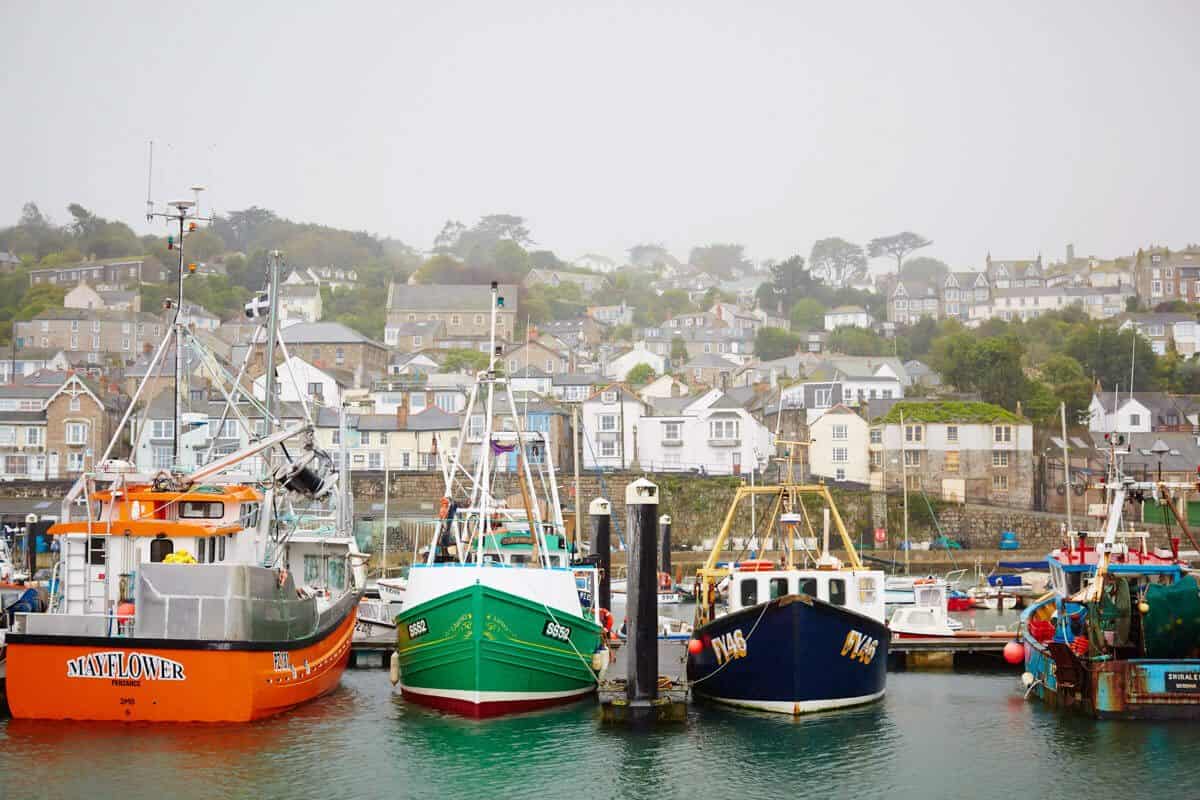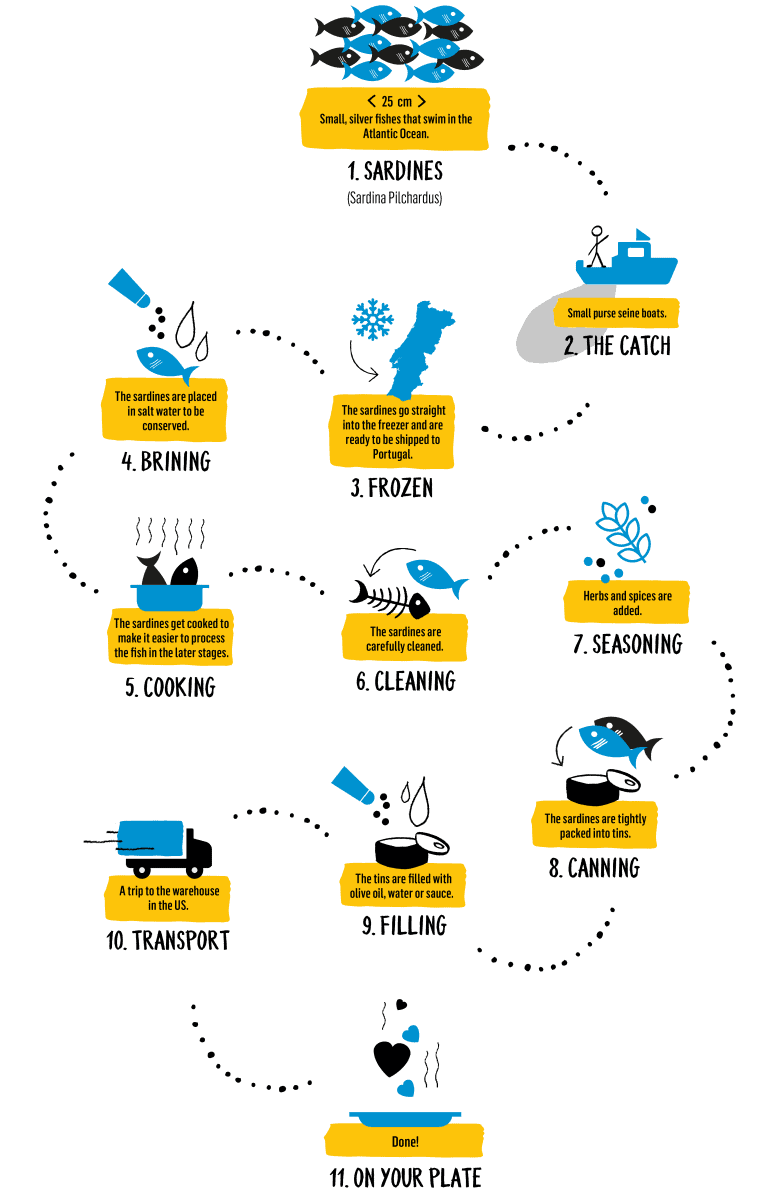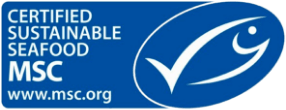Sardines in water
 Prop. 65 Warning for California Residents
Prop. 65 Warning for California ResidentsWARNING: This product may contain chemicals known to the State of California to cause cancer, birth detects, or other reproductive harm.
-
Certificates
- Guaranteed sustainable caught, 3rd party certified by the MSC
- Certified kosher by OU
- Non-GMO certified
-
Product facts
Weight: 4.2 OZ, 120 gr (Drained weight 3.0 OZ, 85 gr)
Ingredients: Sardines (Sardina pilchardus), water, salt.
Contains: Sardines (FISH)
Packaging: BPA free (non intended)
Nutrition facts:
Amount per serving, 85 gr %daily value (1 container) Calories 245 kcal Total fat 17 g 25% Saturated fat 5 g 29% Trans fat 0 g Cholesterol 102 mg 34% Sodium 146 mg 6% Total carb 0 g 0% Fiber 0 g 0% Total sugar 0 g incl. 0g added sugar 0 g 0% Protein 23 g vit. D (6% DV), Calcium (44% DV), Iron (15% DV), Potassium (6% DV)
Origin
Our sardines come from Cornwall – hence the name Cornish sardines. The English version of Saint-Tropez is Newlyn, its harbor is about 1,722,000 sqft making it the home port to one of the biggest fishing fleets in the country.

Fish with a story
The family of sardine fisherman David Pascoe has been fishing for generations for Cornish pilchard sardines. He fishes on request mostly: “We have a very strict no-waste-policy. No demand? Then we don’t ship out. When we do have requests, we make sure that we don’t over-fish the data. We hope by doing it this way, the generations after us can also do this line of work.”

Fishing Method
The fishermen lure the sardines from so-called purse-seine-boats with a lamp to the water’s surface and then put a net around the school. When they pull the net down, it forms a basket around the school.
Straight from the ocean
At Sea Tales we want you to know what the origin is of your fish and what has happened between the catch and your frying pan. We believe that a fully transparent chain makes it easier to choose for fair products - and to enjoy your fish totally guilt-free.





